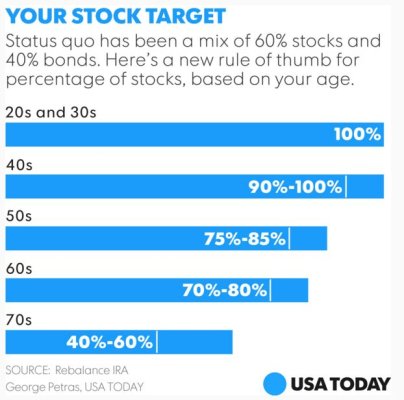Here's a link to this interesting article in today's USA Today in which the author Jeff Reeves argues that while 60/40 portfolio was Ok a generation ago, people are now living longer and so investors must adapt.
The 60/40 stock-and-bond portfolio mix is dead in 2016
Cheers
The 60/40 stock-and-bond portfolio mix is dead in 2016
Cheers


 Oh well. Guess my eyes had a shelf life of 67 years.
Oh well. Guess my eyes had a shelf life of 67 years.